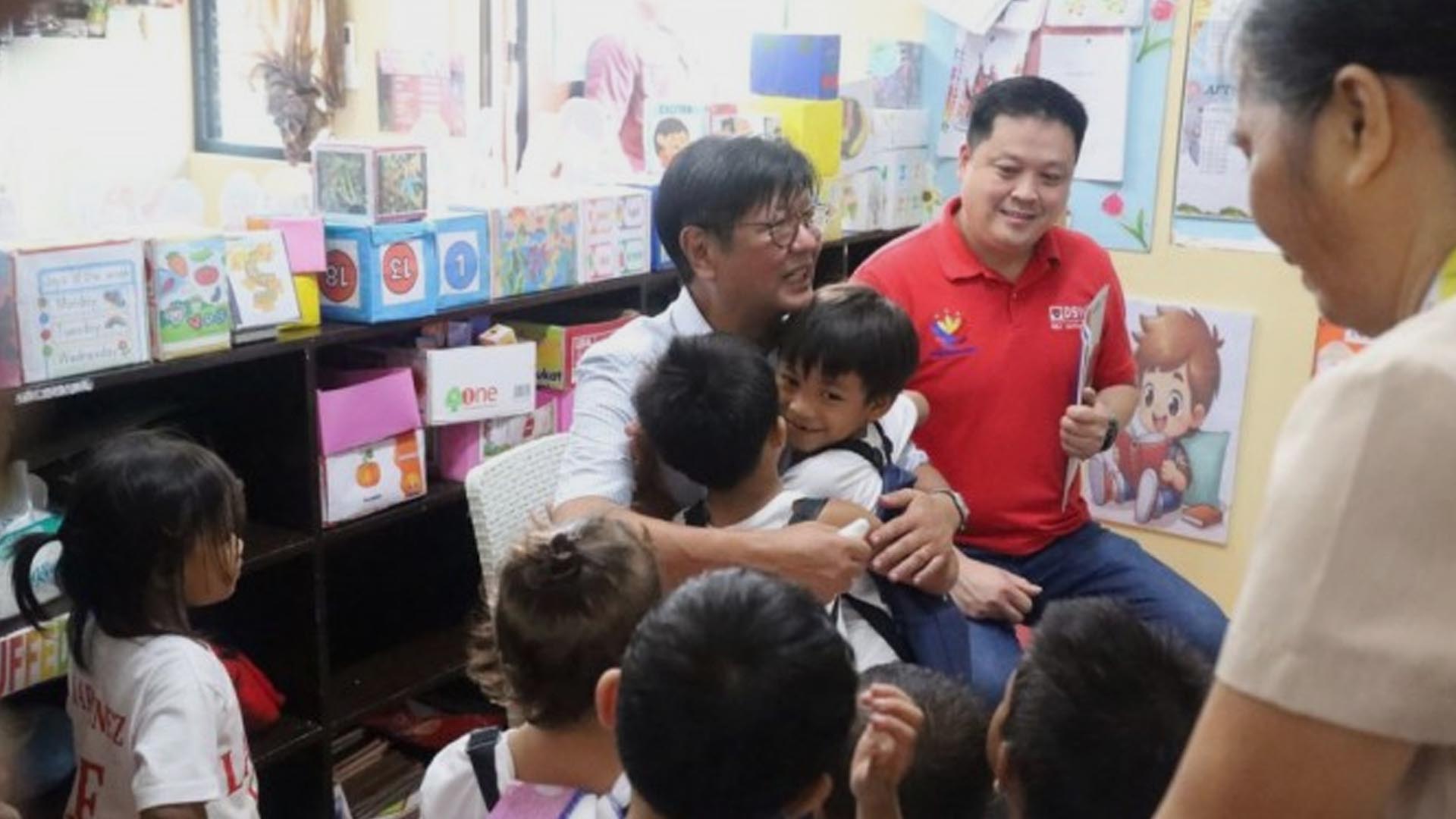President Ferdinand R. Marcos Jr. was greeted with cheers and warm welcome by children and personnel of a Child Development Center (CDC) facility in Barangay La Paz, Santiago, Agusan del Norte, which he visited after turning over 71 patient transport vehicles in this city on Friday.
The CDC facility, operated by the Department of Social Welfare and Development in Caraga (DSWD-13) through its Kapit-Bisig Laban sa Kahirapan – Comprehensive and Integrated Delivery of Social Services (KALAHI-CIDSS) program, was completed in 2023 and continues to serve as a safe and nurturing learning space for children in the town.
The daycare center, which was built on a PHP3,045,187 budget, has benefitted 148 households.
Marcos, accompanied by DSWD Secretary Rex Gatchalian and Undersecretary Monina Josefina Romualdez, was heartily received by DSWD-13 Director Mari-Flor Dollaga, Santiago Mayor Zenaida Lim and La Paz Barangay Captain Benjamin Lim Jr. during the visit.
“DSWD sees the President’s visit as an opportunity to underscore the positive impact of the KALAHI-CIDSS program in improving access to social services and strengthening community participation in development,” the DSWD-13 said in a statement.
Due to the weak internet connectivity at the learning facility, Marcos turned over to the school administrators a Starlink internet connectivity system to enhance digital access for both the learners and community members.
“President Marcos also distributed school bags to the CDC students, symbolizing the government’s commitment to advancing education and inclusion,” the DSWD-13 said.
The Chief Executive also spent time with the children during a storytelling session and thanked the community volunteers who helped construct the center.
“Maraming salamat po sa inyo (Thank you very much to all of you),” Marcos said told the volunteer-residents of Barangay La Paz.
The KALAHI-CIDSS is a program that uses a community-driven development strategy to ensure people-centered development by providing assistance, capacity-building and implementation support to poverty-disadvantaged and disaster-affected municipalities.
Through the program, community members actively participate to identify and prioritize their community’s problems and allow them to design, implement and manage solutions to their priority problems. (PNA)









